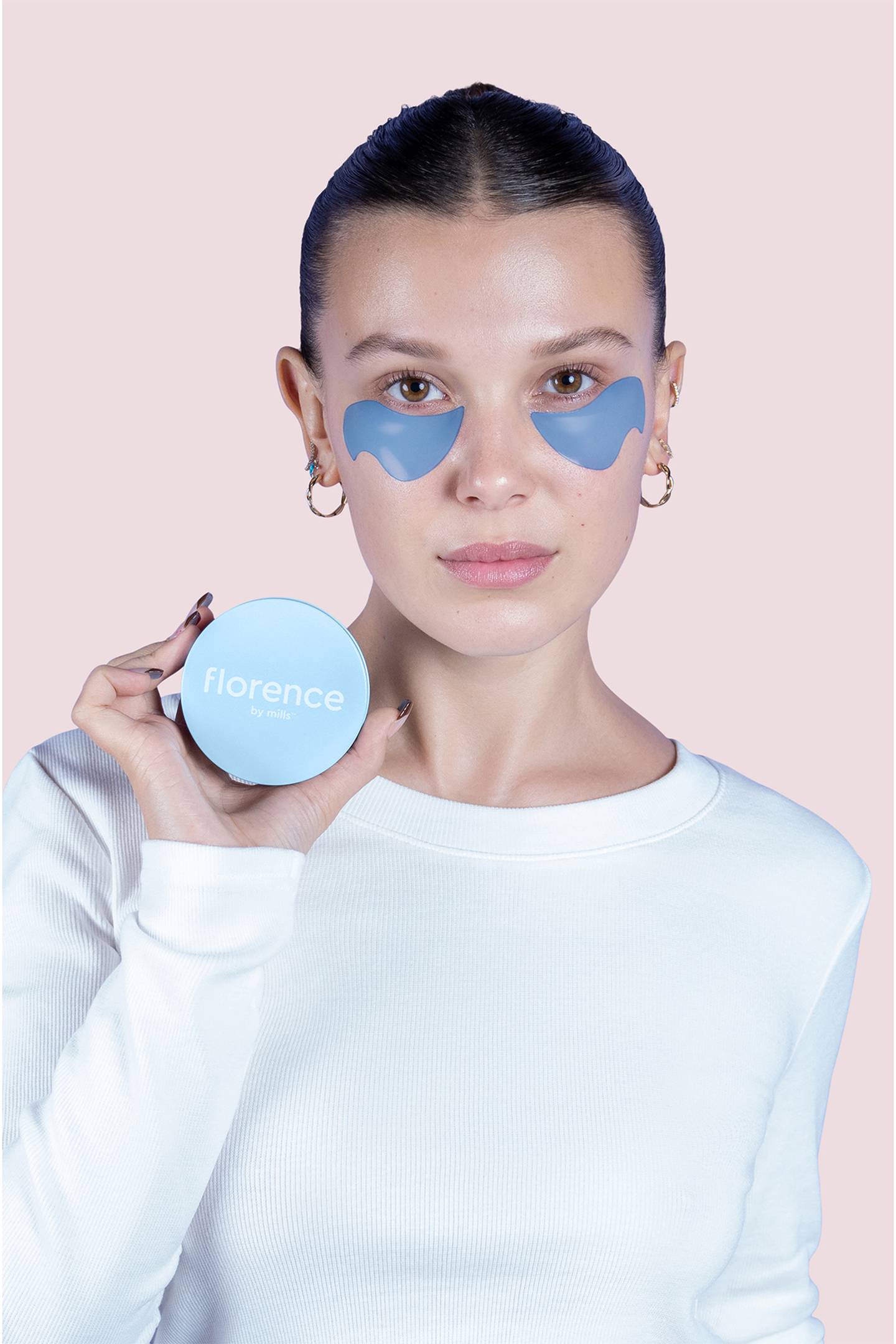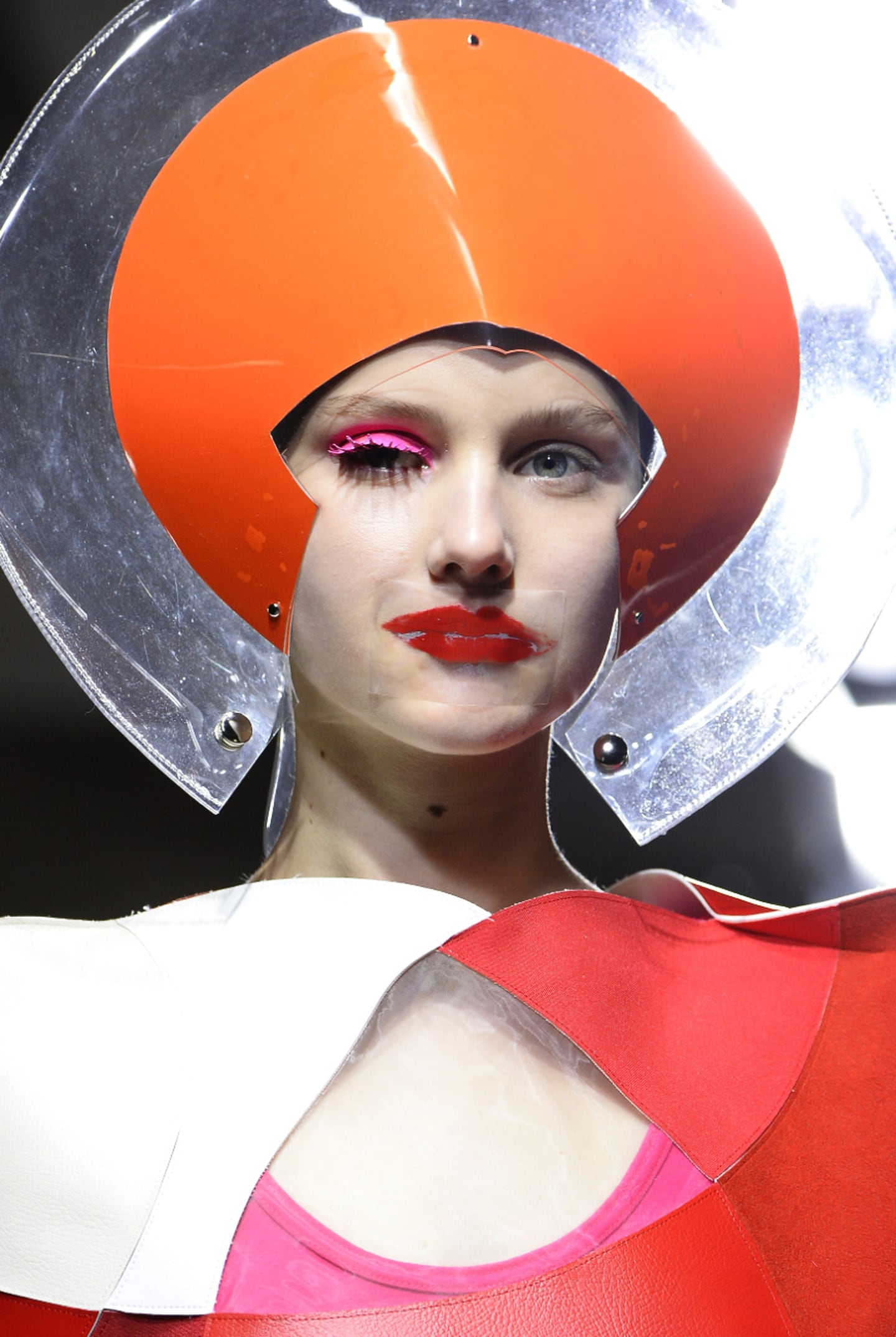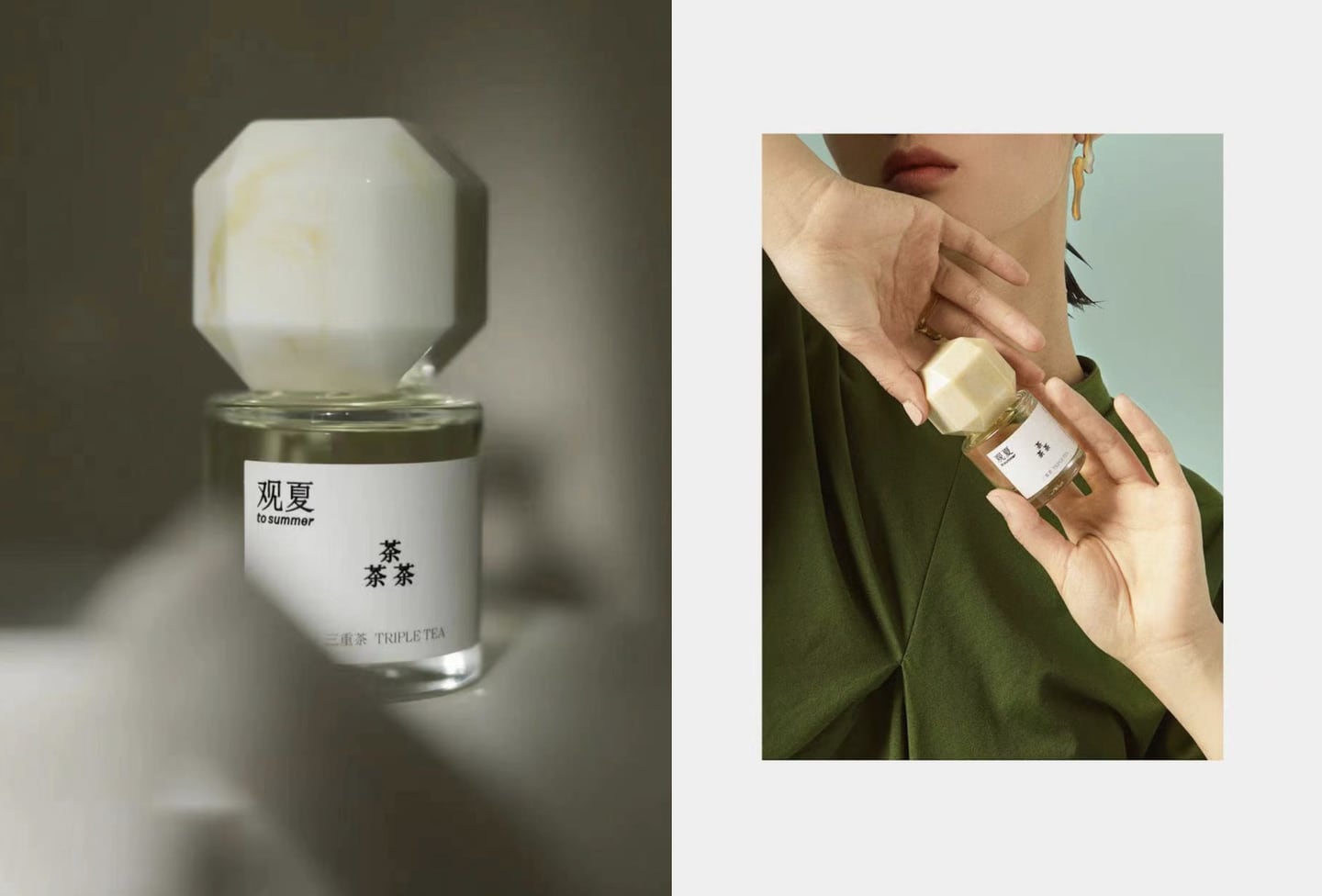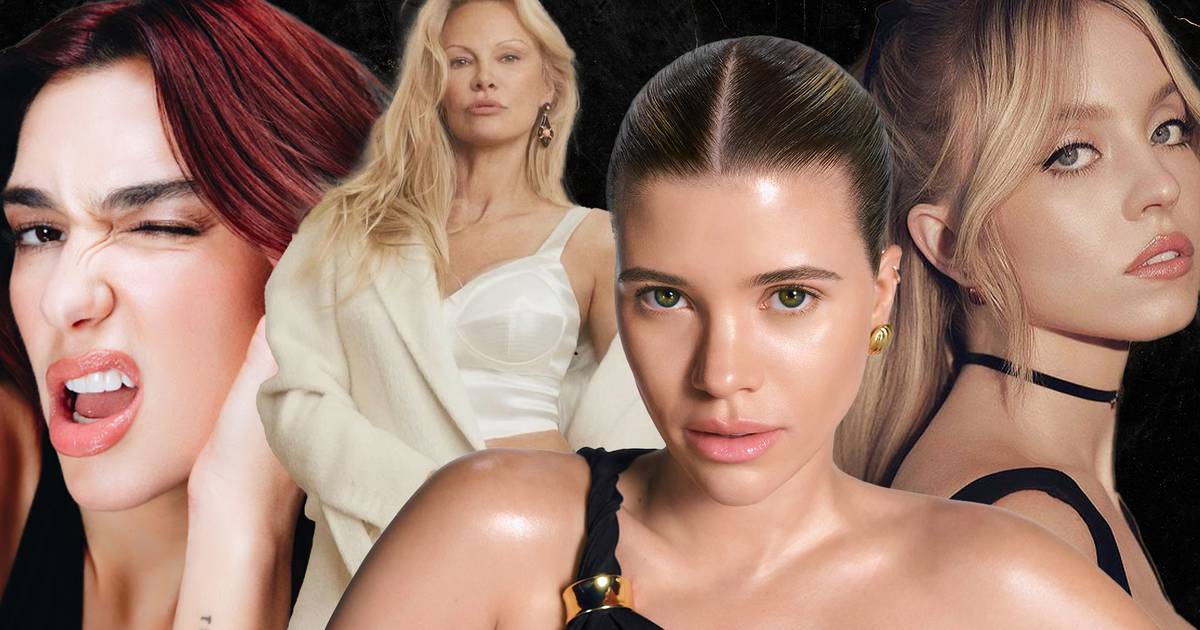Just about a week ago, Style Not Com, or Beka Gvishiani, alerted followers to some breaking news: YSL Beauty had scrubbed its Instagram feed.
The move felt very 2018 to some commenters, who compared the beauty label to Taylor Swift in her “Reputation” era (in case you’ve forgotten, the singer erased her Instagram account six years ago ahead of an album release). Still, fans were clearly intrigued, judging by the engagement with the Style Not Com post.
On Monday, YSL Beauty let their 11.3 million Instagram followers in on their big reveal: singer and songwriter Dua Lipa was the label’s newest global makeup ambassador. “YSL Beauty is exploring new ways to drive authority on social media by creating native content and disruptive ways to connect with the young while igniting virality and stunts,” a press release read. In the brand’s four Instagram posts since the announcement, Lipa and LoveShine, the brand’s newly expanded lip franchise, feature prominently.
Lipa is a big star, but the secretive rollout was a bit surprising. The “Houdini” singer isn’t exactly an unknown quantity in beauty or fashion. She’s been the face of the label’s Libre franchise and a YSL Beauty global brand ambassador for almost five years, and has designed collections with Versace.
In today’s crowded beauty marketing landscape, it’s hard for labels to make noise. A celebrity face alone won’t automatically cut through, but to cautious brands it’s better than the alternative of entering the unpredictable swirl of viral TikTok videos. The problem is that the biggest brands rely on the same rotating cast of famous faces.
Case in point: L’Oréal-owned skincare label Skinceuticals named the ubiquitous Sofia Richie Grainge as its first global brand partner this week. Since her wedding to music executive Elliot Grainge last year, Richie Grainge has fronted campaigns for Prada Beauty, Nudestix and Jo Malone. She also told Porter in December that she plans to start her own beauty brand under the name SRG. In January, actress Sydney Sweeney became the face of Kérastase, after already securing deals with Laneige, Armani Beauty and Miu Miu in fashion. Even genuinely unexpected names can quickly lose their ability to surprise: Pamela Anderson had largely faded from the public eye — until her Netflix documentary “Pamela: A Love Story” dropped in early 2023 before popping up in a Proenza Schouler campaign at the start of 2024. But after that, hardly a week went by without a new announcement for a label she was fronting.
You can’t fault celebrities for wanting to cash in on their name and likeness. The incentives for beauty brands are less clear. According to data from Creator IQ, celebrities tend to drive far less earned media value for beauty labels than fashion lines. For example, Lipa saw $639,000 in beauty EMV in 2023, which was all directed towards YSL Beauty, but drove $8.5 million in fashion ($5 million was for Versace alone). Celebrities are also not driving as much EMV as top beauty influencers, because they post less frequently and more exclusively, said Alex Rawitz, director of content marketing.
Not all celebrities are created equal, so when beauty (and fashion) brands see a sure thing, they want to pounce. It’s the reason that Kendall Jenner remains popular across categories and aesthetics (hello, Jacquemus, Revolve and L’Oréal Paris), same with her sister Kim Kardashian (Balenciaga, Stuart Weitzman and of course her own labels Skkn and Skims).
I just wonder if the customer gets tired.
It’s one thing for a shopper to see Lipa, Richie Grainge, Sweeney and others on their social feeds when they follow them or in street style images or on the red carpet. But when a whole slew of brands use the same faces over and over again, I don’t remember exactly what they are selling. Do you?
Here are my top picks from our insight and analysis on beauty and wellness this week:
1.Will Gen-Z Buy Anything Millie Bobby Brown Sells?

With a very famous founder and zero public financial data, Florence by Mills is either a stealth winner in Gen Z beauty and personal care — or a placeholder for ventures that haven’t happened yet. Perhaps in the right hands it will be both.
2. Isamaya Ffrench on Where Beauty’s Magic Really Comes From

The glory days of backstage beauty are long behind us with front row makeup looks and social media “Get Ready With Me” videos taking its place. But true creativity and a-ha moments can still happen on the runway if we foster it.
3. Why L’Oréal Is Investing in Niche Chinese Fragrance Brands

The French beauty giant’s two latest deals are part of a wider M&A push by global players to capture a larger slice of the China market, targeting buzzy high-end brands that offer products with distinctive Chinese elements.
THE BUSINESS OF BEAUTY NEWS IN BRIEF
Bath & Body Works projects downbeat full year sales and profit on slowing demand. Shares were down 9 percent in pre-market trading. The beauty and skincare firm expects 2024 annual net sales to range between a decline of 3 percent to flat.
Olaplex embarks on turnaround plan after rough 2023. CEO Amanda Baldwin said the brand’s comeback strategy would include more focus on the professional stylist channel, an investment in elevating brand equity and use of data to drive decisions.
Supergoop names Lisa Sequino as new CEO. Most recently, Sequino was CEO at Jennifer Lopez’s skincare brand JLo Beauty. Sequino takes the helm after former CEO Amanda Baldwin joined Olaplex late last year.
YSL Beauty taps Dua Lipa as global makeup ambassador. Lipa previously served as the label’s global brand ambassador as the face of its Libre fragrance since 2019. With Lipa’s expanded role, YSL Beauty hopes to appeal to a new generation of beauty consumers.
Skinceuticals taps Sofia Richie Grainge as first global brand partner. The model and entrepreneur will front the label’s new Skin Powered by Aesthetic Doctors global campaign. She has also curated a branded skincare routine, deemed “The Sofia,” which will be available to shop at the line’s e-commerce site.
Estée Lauder announces collaboration with Sabyasachi on a collection of 10 lipsticks. The partnership is part of the conglomerate’s larger strategy to capture the Indian market. It also marks Sabyasachi’s first foray into beauty.
Sephora kicks off its first impact summit for BIPOC-founded brands. The Impact Summit is meant to delve deeper into Sephora’s diversity, equity and inclusion work. 15 Percent Pledge founder Aurora James, Tower 28 founder Amy Liu and Danessa Myricks, founder of her namesake label were speakers.
British fashion chain Next is in talks to acquire The Body Shop assets. Any sale, however, would not include The Body Shop’s most recognisable assets. Its brand and intellectual property are not part of the administration process.
The Body Shop to close 75 stores across the UK. Nearly 800 people will lose their jobs when the 300 redundancies at the head office are taken into account. 116 stores will stay open under the changes.
Shiseido offers early retirement for 1,500 staff amid cost cuts. The plan will be offered to employees who meet certain age and tenure requirements, and applications will be open April 17 through May 8. The estimated financial impact of the measure has already been incorporated into the company’s full-year forecast.
Famille C Participations invests in €130 Million in luxury hotelier. The company , owned by the Courtin family, has taken a strategic stake in luxury hotel brand Evok Collection.The investment includes a partnership with Evok Collection to open Clarins Spa locations in its hotels.
Advent International invests in Skala Cosméticos. Advent International said the investment was made from a $2 billion fund, LAPEF VII, specifically allotted for deals in Latin America. Advent International previously invested in Olaplex and Parfums de Marly.
US FDA chief is very concerned about fake weight loss drugs. Demand for weight loss drugs is far outpacing supply with some analysts forecasting the market for weight-loss drugs could reach $100 billion a year by the end of the decade. Earlier this month, the FDA sent warning letters to two online vendors for selling unapproved and misbranded versions of semaglutide and tirzepatide.
